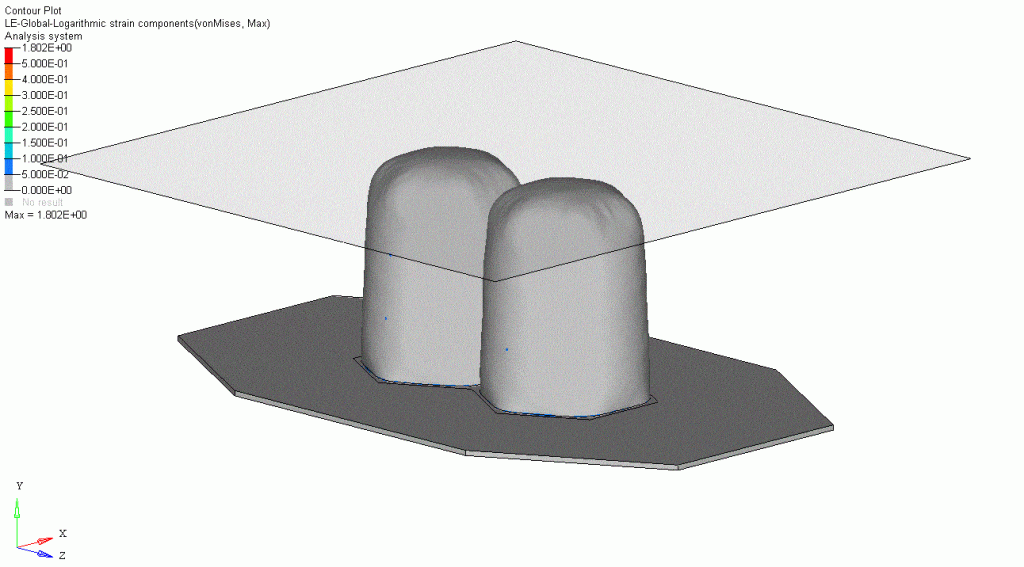Abaqus Equation Solvers
Both linear and nonlinear problems in FEA require the solution of large systems of linear equations. The solution and storage of these equations have a significant impact on the overall analysis performance. There are two options for linear equation solvers within Abaqus Standard: Direct Sparse Solver and Iterative Linear Equation Solver.
Abaqus uses the Direct Sparse Solver by default. This is a good general purpose solver with excellent stability. It returns an exact solution using the Gauss elimination method. It is most efficient when the equations are “sparse” such as produced in models that have thin members, beams, and shells.
The Iterative Linear Abaqus Equation Solver is selected using the syntax:
*Step, solver=iterative
This solver attempts to converge on an approximate solution through quick iterations and corrections. The solution will be accepted when it is within a reasonable tolerance. This solver can outperform the Direct Sparse Solver for large, bulky models but there are many restrictions on its use and poorly conditioned models will run slower or possibly “stagnate” without finding a solution.
The latest versions of Abaqus 2017 (starting with FP.1721 release) include enhancements to the Iterative Linear Equation Solver. The updated solver uses less memory than previous releases and reportedly offers improved performance and stability in some cases.
CATI can help review typical models to check their applicability for use with the Iterative Equation Solver.


 Blog
Blog